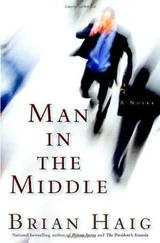John Haaren - Famous Men of The Middle Ages
Здесь есть возможность читать онлайн «John Haaren - Famous Men of The Middle Ages» весь текст электронной книги совершенно бесплатно (целиком полную версию без сокращений). В некоторых случаях можно слушать аудио, скачать через торрент в формате fb2 и присутствует краткое содержание. Жанр: История, на английском языке. Описание произведения, (предисловие) а так же отзывы посетителей доступны на портале библиотеки ЛибКат.
- Название:Famous Men of The Middle Ages
- Автор:
- Жанр:
- Год:неизвестен
- ISBN:нет данных
- Рейтинг книги:5 / 5. Голосов: 1
-
Избранное:Добавить в избранное
- Отзывы:
-
Ваша оценка:
- 100
- 1
- 2
- 3
- 4
- 5
Famous Men of The Middle Ages: краткое содержание, описание и аннотация
Предлагаем к чтению аннотацию, описание, краткое содержание или предисловие (зависит от того, что написал сам автор книги «Famous Men of The Middle Ages»). Если вы не нашли необходимую информацию о книге — напишите в комментариях, мы постараемся отыскать её.
Famous Men of The Middle Ages — читать онлайн бесплатно полную книгу (весь текст) целиком
Ниже представлен текст книги, разбитый по страницам. Система сохранения места последней прочитанной страницы, позволяет с удобством читать онлайн бесплатно книгу «Famous Men of The Middle Ages», без необходимости каждый раз заново искать на чём Вы остановились. Поставьте закладку, и сможете в любой момент перейти на страницу, на которой закончили чтение.
Интервал:
Закладка:
The Teutons believed that before there were any gods or any world there was a great empty space where the world now is. It was called by the curious name Ginnungagap, which means a yawning abyss.
To the north of Ginnungagap it was bitterly cold. Nothing was there but fields of snow and mountains of ice. To the south of Ginnungagap was a region where frost and snow were never seen. It was always bright, and was the home of light and heat. The sunshine from the South melted the ice mountains of the North so that they toppled over and fell into Ginnungagap. There they were changed into a frost giant whose name was Ymir (e'mir). He had three sons. They and their father were so strong that the gods were afraid of them.
So Woden and his brothers killed Ymir. They broke his body in pieces and made the world of them. His bones and teeth became mountains and rocks; his hair became leaves for trees and plants; out of his skull was made the sky.
But Ymir was colder than ice, and the earth that was made of his body was so cold that nothing could live or grow upon it. So the gods took sparks from the home of light and set them in the sky. Two big ones were the sun and moon and the little ones were the stars. Then the earth became warm. Trees grew and flowers bloomed, so that the world was a beautiful home for men.
Of all the trees the most wonderful was a great ash tree, sometimes called the "world tree." Its branches covered the earth and reached beyond the sky till they almost touched the stars. Its roots ran in three directions, to heaven, to the frost giants' home and to the under-world, beneath the earth.
Near the roots in the dark under-world sat the Norns, or fates. Each held a bowl with which she dipped water out of a sacred spring and poured it upon the roots of the ash tree. This was the reason why this wonderful tree was always growing, and why it grew as high as the sky.
When Woden killed Ymir he tried to kill all Ymir's children too; but one escaped, and ever after he and his family, the frost giants, tried to do mischief, and fought against gods and men.
According to the belief of the Teutons these wicked giants will some day destroy the beautiful world. Even the gods themselves will be killed in a dreadful battle with them. First of all will come three terrible winters without any spring or summer. The sun and moon will cease to shine and the bright stars will fall from the sky. The earth will be shaken as when there is a great earthquake; the waves of the sea will roar and the highest mountains will totter and fall. The trees will be torn up by the roots, and even the "world tree" will tremble from its roots to its topmost boughs. At last the quivering earth will sink beneath the waters of the sea.
Then Loki, the spirit of evil, will break loose from the fetters with which the gods have bound him. The frost giants will join him. They will try to make a secret attack on the gods. But Heimdall, the sentry of heaven, will be on guard at the end of the rainbow-bridge. He needs no more sleep than a bird and can see for a hundred miles either by day or night. He only can sound the horn whose blast can be heard through heaven and earth and the under-world. Loki and his army will be seen by him. His loud alarm will sound and bring the gods together. They will rush to meet the giants. Woden will wield his spear — Tiew his glittering sword — Thor his terrible hammer. These will all be in vain. The gods must die. But so must the giants and Loki.
And then a new earth will rise from the sea. The leaves of its forests will never fall; its fields will yield harvests unsown. And in a hall far brighter than Woden's Valhalla the brave and good will be gathered forever.
The Nibelungs
The time came when the people of Western Europe learned to believe in one God and were converted to Christianity, but the old stories about the gods and Valkyries and giants and heroes, who were half gods and half men, were not forgotten.
These stories were repeated from father to son for generations, and in the twelfth century a poet, whose name we do not know, wrote them in verse. He called his poem the Nibelungenlied (song of the Nibelungs). It is the great national poem of the Germans. The legends told in it are the basis of Wagner's operas.
"Nibelungs" was the name given to some northern dwarfs whose king had once possessed a great treasure of gold and precious stones but had lost it. Whoever got possession of this treasure was followed by a curse. The Nibelungenlied tells the adventures of those who possessed the treasure.
In the grand old city of Worms , in Burgundy , there lived long ago the princess Kriemhilda. Her eldest brother Gunther was king of Burgundy .
And in the far-away Netherlands , where the Rhine pours its waters into the sea, dwelt a prince named Siegfried, son of Siegmund, the king.
Ere long Sir Siegfried heard of the beauty of fair Kriemhilda. He said to his father, "Give me twelve knights and I will ride to King Gunther's land. I must win the heart of Kriemhilda."
After seven days' journey the prince and his company drew near to the gates of Worms . All wondered who the strangers were and whence they came. Hagen, Kriemhilda's uncle, guessed. He said, "I never have seen the famed hero of Netherlands , yet I am sure that yonder knight is none but Sir Siegfried."
"And who, " asked the wondering people, "may Siegfried be?"
"Siegfried, " answered Sir Hagen, "is a truly wonderful knight. Once when riding all alone, he came to a mountain where lay the treasure of the king of the Nibelungs. The king's two sons had brought it out from the cave in which it had been hidden, to divide it between them. But they did not agree about the division. So when Seigfied drew near both princes said, 'Divide for us, Sir Siegfried, our father's hoard.' There were so many jewels that one hundred wagons could not carry them, and of ruddy gold there was even more. Seigfied made the fairest division he could, and as a reward the princes gave him their father's sword called Balmung. But although Siegfried had done his best to satisfy them with his division, they soon fell to quarreling and fighting, and when he tried to separate them they made an attack on him. To save his own life he slew them both. Alberich, a mountain dwarf, who had long been guardian of the Nibelung hoard, rushed to avenge his masters; but Siegfried vanquished him and took from him his cap of darkness which made its wearer invisible and gave him the strength of twelve men. The hero then ordered Alberich to place the treasure again in the mountain cave and guard it for him."
Hagen then told another story of Siegfried:
"Once he slew a fierce dragon and bathed himself in its blood, and this turned the hero's skin to horn, so that no sword or spear can wound him."
When Hagen had told these tales he advised King Gunther and the people of Burgundy to receive Siegfried with all honor.
So, as the fashion was in those times, games were held in the courtyard of the palace in honor of Siegfried, and Kriemhilda watched the sport from her window.
For a full year Siegfried stayed at the court of King Gunther, but never in all that time told why he had come and never once saw Kriemhilda.
At the end of the year sudden tidings came that the Saxons and Danes, as was their habit, were pillaging the lands of Burgundy . At the head of a thousand Burgundian knights Siegfried conquered both Saxons and Danes. The king of the Danes was taken prisoner and the Saxon king surrendered.
The victorious warriors returned to Worms and the air was filled with glad shouts of welcome. King Gunther asked Kriemhilda to welcome Siegfried and offer him the thanks of all the land of Burgundy .
Siegfried stood before her, and she said, "Welcome, Sir Siegfried, welcome; we thank you one and all." He bent before her and she kissed him.
Читать дальшеИнтервал:
Закладка:
Похожие книги на «Famous Men of The Middle Ages»
Представляем Вашему вниманию похожие книги на «Famous Men of The Middle Ages» списком для выбора. Мы отобрали схожую по названию и смыслу литературу в надежде предоставить читателям больше вариантов отыскать новые, интересные, ещё непрочитанные произведения.
Обсуждение, отзывы о книге «Famous Men of The Middle Ages» и просто собственные мнения читателей. Оставьте ваши комментарии, напишите, что Вы думаете о произведении, его смысле или главных героях. Укажите что конкретно понравилось, а что нет, и почему Вы так считаете.










